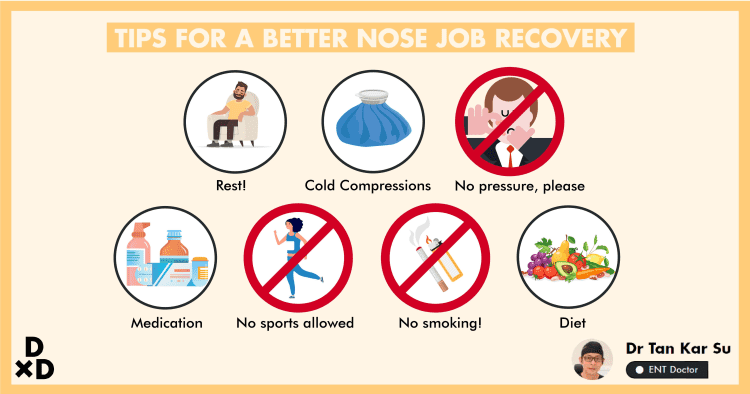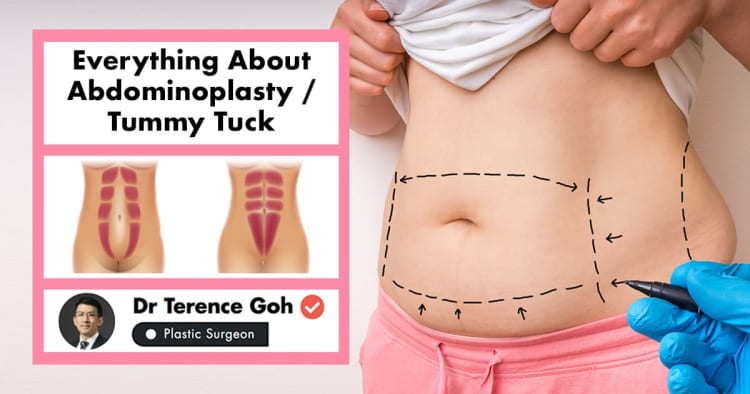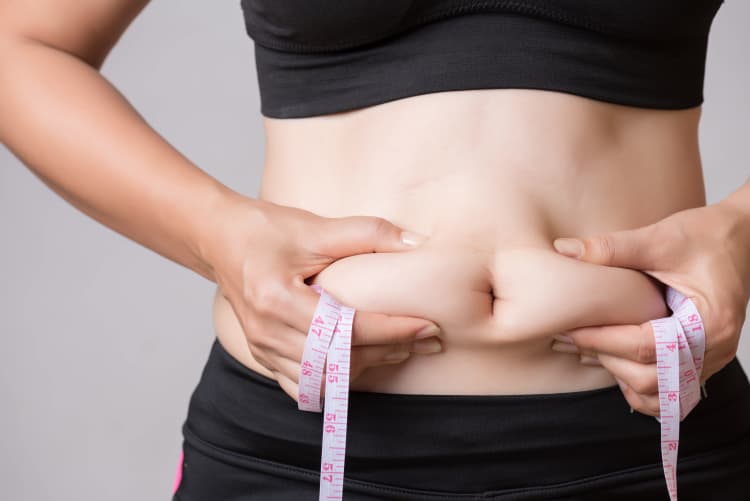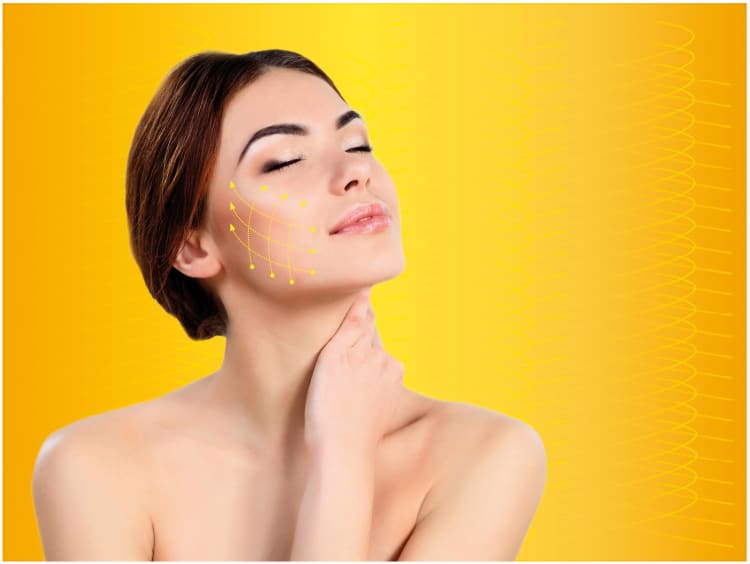Excited to see the results of your rhinoplasty procedure? Regardless, the recovery process takes time and great care is needed to ensure the best results.
But what happens during the process? What are the things you need to take note of? What should you do or not do? Can you return to your ideal lifestyle? Many people are unclear about what to expect post-rhinoplasty. In this article. I will share with you my advice and tips so you can enjoy a great recovery.
What is rhinoplasty?
Commonly known as a nose job, rhinoplasty is a surgery that changes the look of your nose. You may do it either for medical or aesthetic reasons and sometimes, it can be both.
What happens after a rhinoplasty?
During the procedure, you will not be able to feel much, if any at all. This is because you will be placed under local or general anaesthesia.
After the surgery, you will wear a nose case where a splint and/or packing is placed inside your nose. On the outside, a splint or bandage will support your nose during the healing process. It will be left in place for up to 1 week. It helps to protect your nose as well as reduce swelling.
What are the possible side effects of rhinoplasty?

To list, the possible side effects of rhinoplasty include:
- Facial pain
- Reaction to anaesthesia
- Scarring
- Nosebleeds
- Infection
- Numbness
- Difficulty breathing [1]
- Rupture of small surface blood vessels
- Swelling
However, it is possible to have irregularities or an uneven nose. In such cases, I would recommend informing your surgeon if you think your nose looks irregular. A follow-up surgery may be your next option as a result.
What is the downtime?
Stitches will be removed in 5-10 days if any is used. Initial healing will likely take place in the first month. Your nose is a sensitive organ, hence, it may take up to a full year to heal completely [2].
Tips:
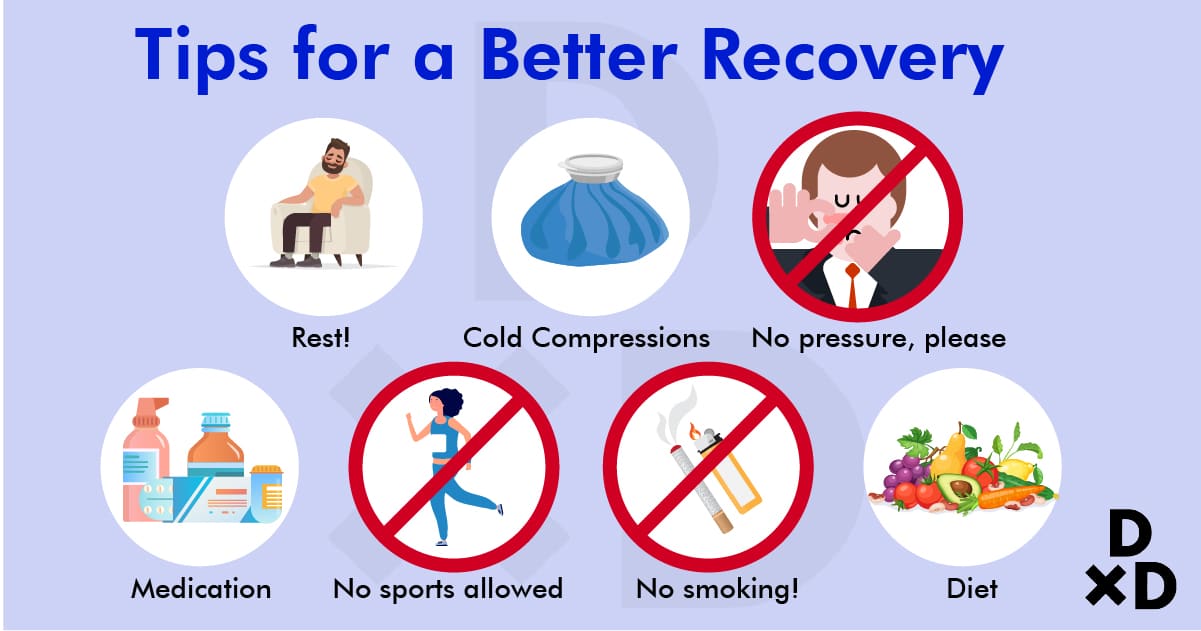
#1 - Rest!
You just had a major procedure! Therefore, resting is the first thing you should do. You may need to stay off work for around two weeks. Furthermore, you should stay in bed and make sure to raise your head higher than your chest. In essence, raising your head adequately helps to reduce postoperative oedema and discolouration of the skin caused by bruising [3]. For those reasons, try to always keep your head upright.
#2 - Cold compression
Regular application of cold compression can indeed help to reduce pain, swelling and speed up the process of healing [4]. In that regard, for the first 2 days, patients are advised to apply ice packs on these areas:
- Forehead
- Eyes
- Cheeks
#3 - No pressure, please.
Avoid extreme facial expressions such as laughing and smiling. Besides that, do not place your eyeglasses onto your nose for at least four weeks. Also, avoid using clothes that require you to pull over your head. In other words, use button-ups instead.
To sum it up, the main goal is to not strain and put pressure on your new nose. Any pressure or force applied to the nose while it is healing may affect its structure.
#4 - Medication
You should always inform your doctor of any known allergies you have. Rhinoplasty is generally not a painful surgery. However, if your post-op pain becomes unbearable, you may ask for medications to help ease the pain. Be sure to inform your doctor for prescriptions. Thus, make sure you know:
- what they are for,
- how often and
- for how long you have to take them [5].
Avoid medications that may increase bleeding such as:
- Aspirin
- Anti-inflammatory drugs
- Herbal supplements
#5 - No sports allowed
For up to 6 weeks, avoid vigorous sports or activities that run a risk of you hitting your nose:
- Ball sports
- Aerobics
- Jogging
#6 - No smoking!
Smoking slows the healing process and increases the chance of infection. Hence, avoid tobacco for 4 months until everything has healed [6].
#7 - Diet
Eat plenty of fruits and vegetables that are high in fibre to avoid constipation. Constipation may cause you to strain yourself in the toilet. In particular, you may accidentally put pressure on facial structures like your nose. Avoid diets high in salt as it may increase swelling. Therefore, be sure to hydrate yourself sufficiently.
In short
The nose is the most sensitive organ with a thick skin sleeve. Always remember to inform your doctor if you feel anything odd or severe pain. Follow all the instructions for post-op care. Besides that, do not leave with answers unanswered. These will help with the procedure’s success and the end result.
%treatmentquote title=Get treatment quote for Rhinoplasty%
Dr Tan Kar Su has gained intensive experience in both nasal function and aesthetics. He has deepened his understanding over the years in areas such as the skin, cartilage, bones, and nasal functions. Dr Tan was awarded a year of national scholarship with Shimmian Rhinoplasty Clinic and he served at the ENT Department of Khoo Teck Puat Hospital as a facial plastic consultant after returning back to Singapore.
Read more of Dr Tan Kar Su's QnA here.
